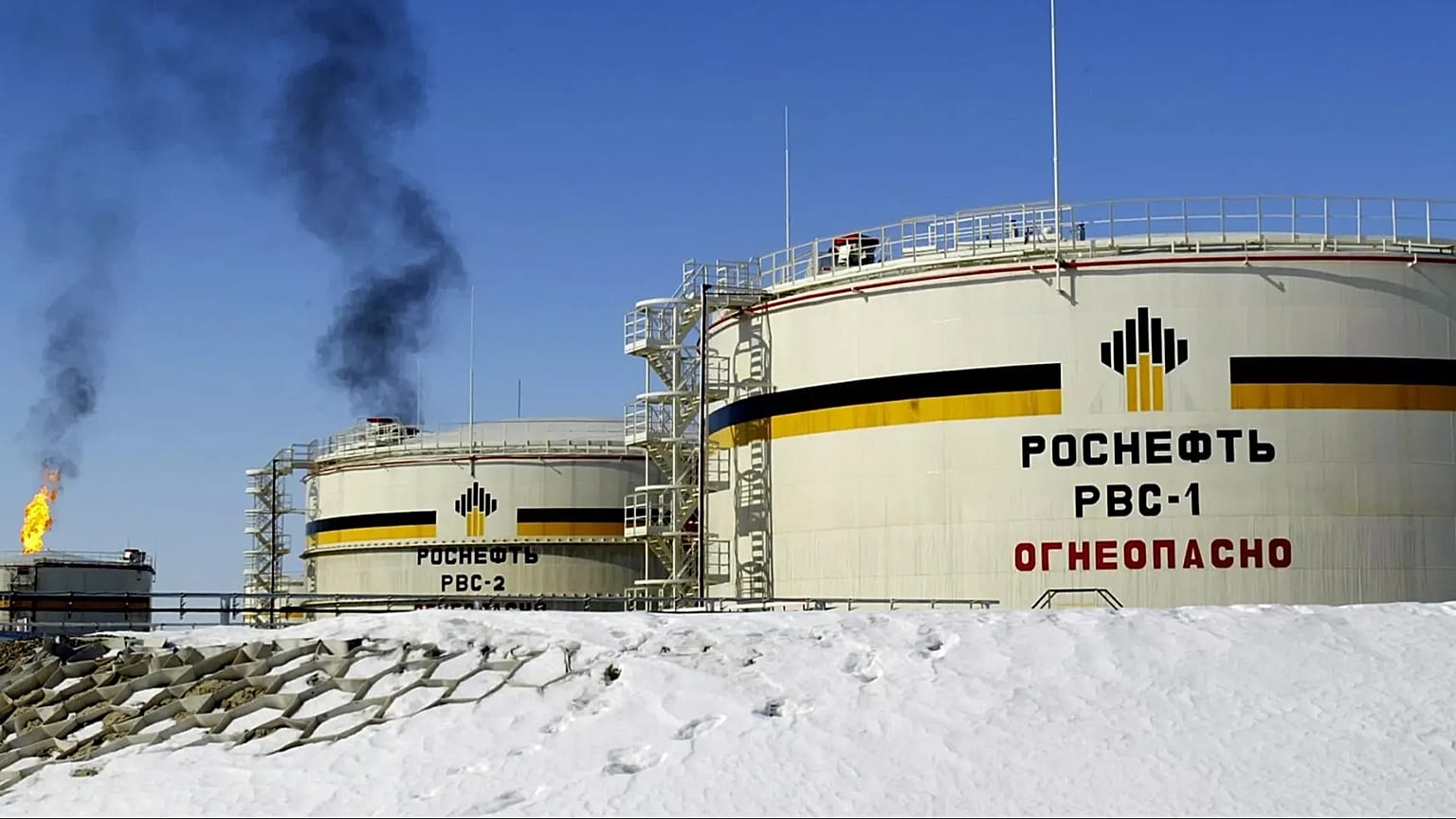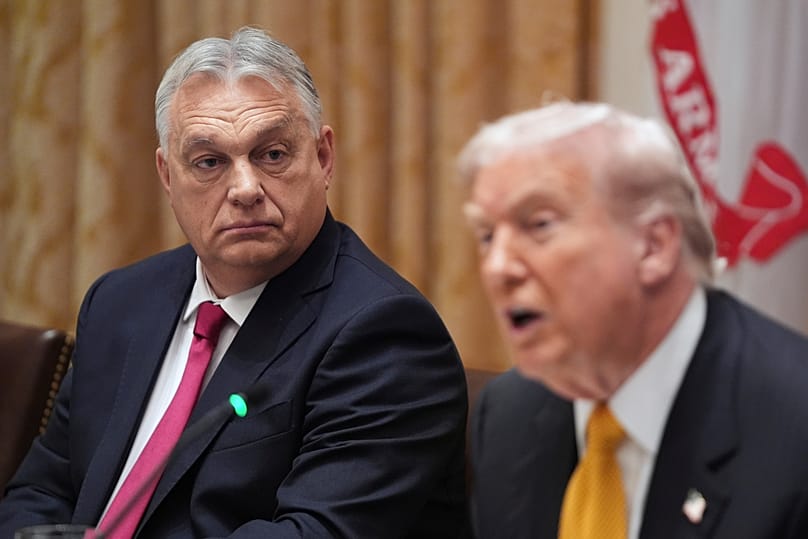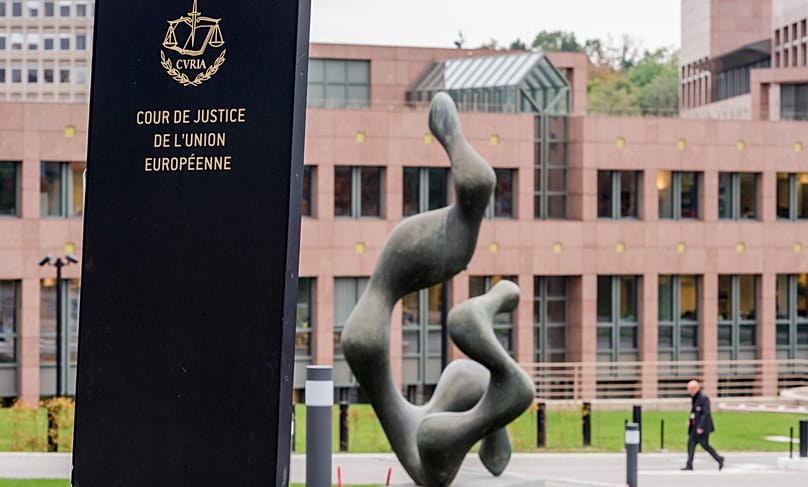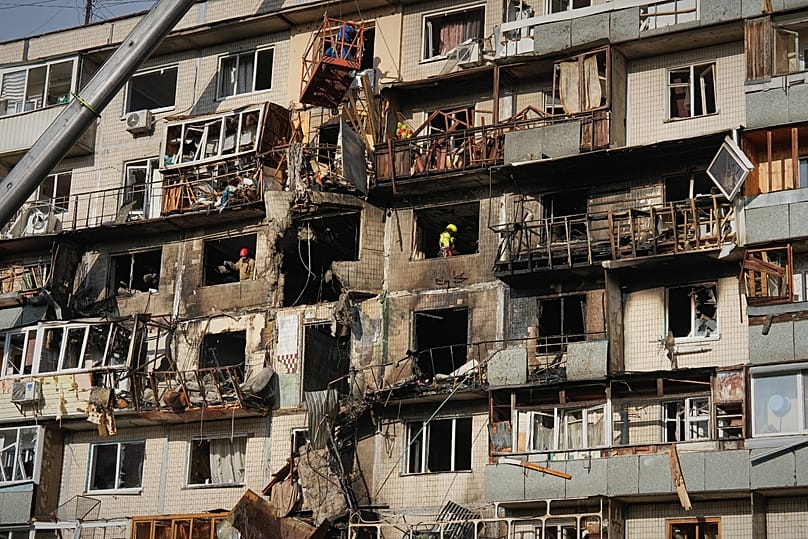Hungary is heavily dependent on Russian fossil fuels and has sought exemptions and pledged to veto EU sanctions since Moscow's full-scale invasion of Ukraine in early 2022.
Hungary will challenge the European Union's plan to end Russian energy imports and take the case to an EU court, Prime Minister Viktor Orbán said Friday.
Speaking on state radio, Orbán accused the bloc of trying to sidestep his veto power over sanctions on Russian energy by instead using trade rules in its plan to phase out all imports of Russian oil and gas by the end of 2027.
"We are turning to the European Court of Justice in this matter," Orbán said.
"This is a flagrant violation of European law, the rule of law and European cooperation ... They will pay a very high price for this."
Landlocked Hungary remains heavily dependent on Russian fossil fuels and has sought exemptions and threatened to veto EU sanctions since Moscow's 2022 full-scale invasion of Ukraine.
During a visit to Washington last week, Orbán secured an exemption from US sanctions on two Russian energy companies following a White House meeting with US President Donald Trump.
During a press briefing with Hungarian media following his talks with Trump, Orbán said Hungary had "been granted a complete exemption from sanctions" on Russian gas delivered via the TurkStream pipeline and oil from the Druzhba pipeline.
"We asked the president to lift the sanctions," said Orbán. "We agreed and the president decided, and he said that the sanctions will not be applied to these two pipelines."
Hungary agreed to buy US liquefied natural gas (LNG) as part of the discussions, the US State Department said, noting contracts were expected to be worth about $600 million (€518.6 million).
US Secretary of State Marco Rubio said the waiver, which ensures Russian oil and gas will continue to flow to Hungary, will last one year.
On Friday, Orbán credited his close personal relationship with Trump for receiving the exemption and said it would remain in place as long as both he and the president remain in office.
Orbán has called continued access to Russian energy "vital" for his country and warned that cutting it off would result in an economic collapse, though some critics dispute that claim.
The Hungarian leader said on Friday he was "also exploring other means of a non-legal nature" to avoid falling under the EU's planned Russian energy phase-out, but declined to say what they were.
Phasing out Russian energy
In early May, the EU set 2027 as the deadline for all 27 member states to phase out all remaining purchases of Russian energy, including liquefied natural gas (LNG).
The phase-out will take place gradually, beginning with a ban on new and short-term contracts by the end of 2025.
In the second stage, long-term contracts, which account for two-thirds of Russian gas, will be terminated by the end of 2027.
Further restrictions will also be introduced to crack down on the shadow fleet that covertly transports Russian oil and stop imports of Russian uranium and other nuclear materials.
Each member state will be asked to draft a national plan detailing how they intend to remove Russian gas, nuclear and oil from their energy mix.
In 2024, the EU spent an estimated €23 billion on Russian fossil fuels, exceeding the military support provided to Ukraine.
This imbalance has been a long-standing source of friction among member states, which, despite constant pleas from Kyiv, have never managed to reach consensus and entirely phase out Russian energy.
Earlier this year, 10 EU countries – the Czech Republic, Denmark, Estonia, Finland, Ireland, Latvia, Lithuania, Poland, Romania and Sweden – signed a joint letter demanding a complete ban on Russian gas, including LNG imports.
"Russia's ability to sustain its war efforts is deeply intertwined with its energy revenues," they wrote.
Hungary and Slovakia in contrast closed ranks to oppose penalties, arguing that doing so would imperil their national economies and the EU's competitiveness.


















